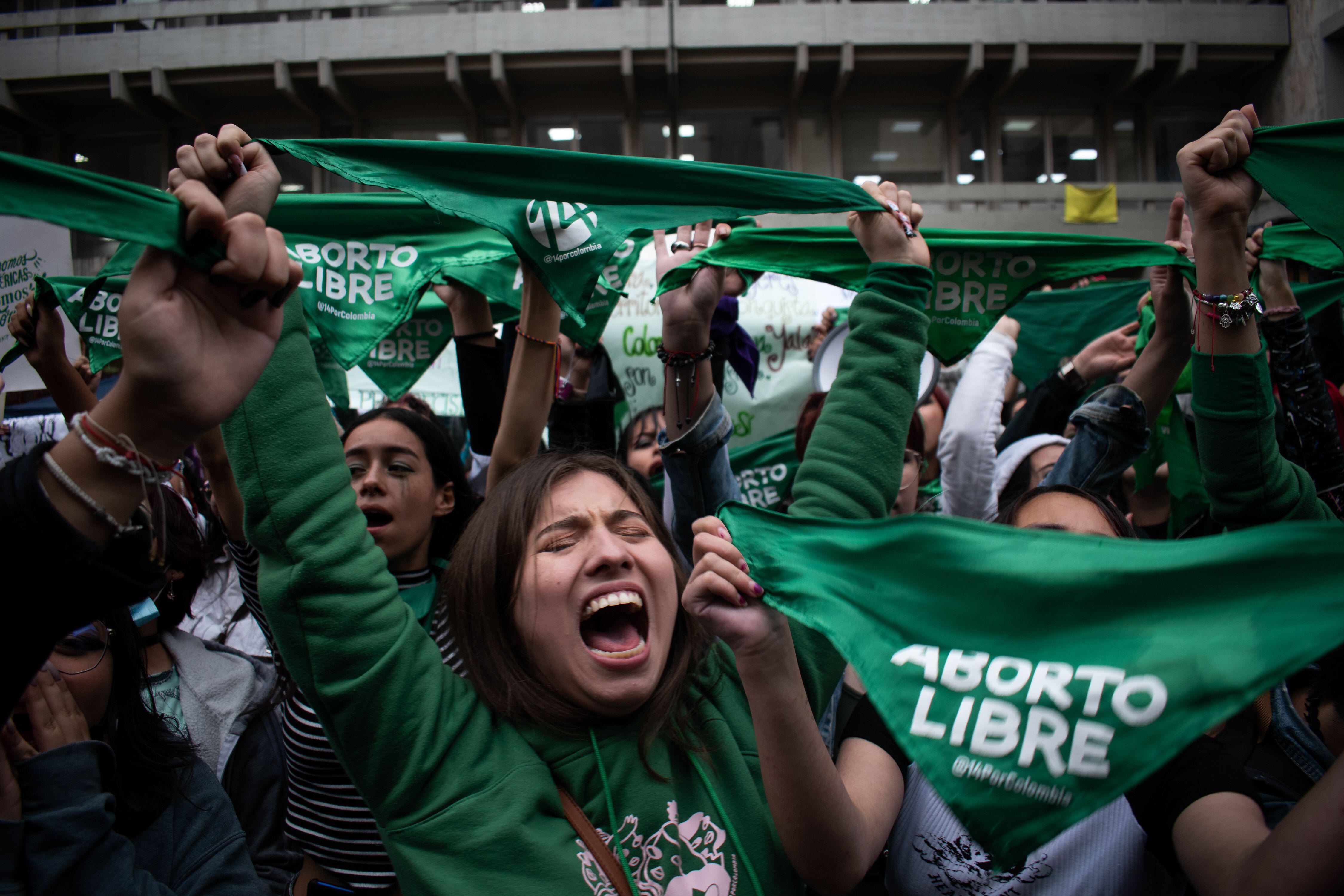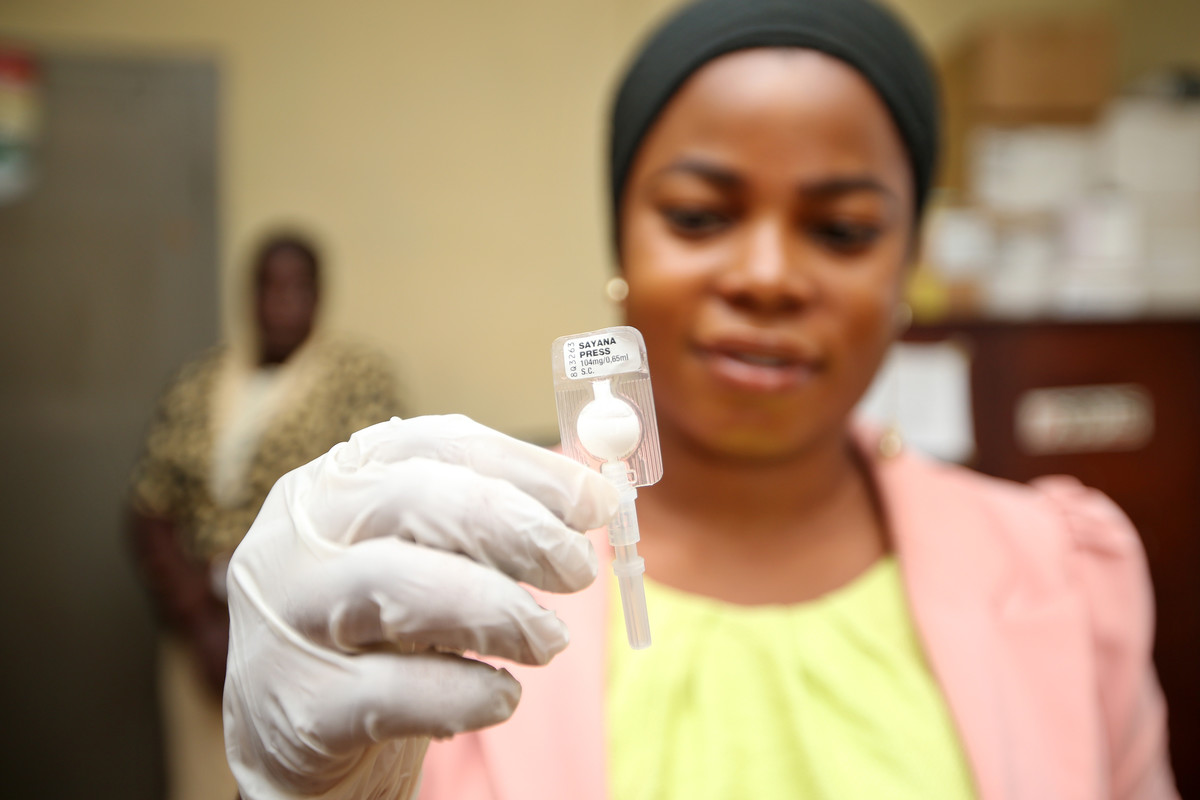
Spotlight
A selection of news from across the Federation

IPPF Statement on the 68th session of the Commission on the Status of Women (CSW)
IPPF welcomes the agreed conclusions of the 68th session of the Commission on the Status of Women (CSW), on the theme of “Accelerating the achievement of gender equality and the empowerment of all women and girls by addressing poverty and strengthening institutions and financing with a gender perspective”. IPPF actively engaged in the process by providing technical inputs to Member States, raising awareness about the interlinkages between SRHR, poverty, gender equality and the empowerment and human rights of all women and girls.
Filter our news by:


| 18 March 2022
IPPF Office in Bogota
We are overjoyed to announce the opening of the first of two locations of the International Planned Parenthood Federation - Americas and the Caribbean Regional Office (ACRO), in Bogota, Colombia. IPPF Director-General Dr. Alvaro Bermejo, IPPF ACRO's Regional Director Eugenia López Uribe, Deputy Regional Director Dona Da Costa Martinez, and IPPF Director of External Relations Mina Barling were joined by team members from the ACRO and London Offices to reinforce the commitment to the fight for rights and access to sexual and reproductive services in the region. This is an especially exciting time as Colombia stands as the latest champion to step forward to protect the bodily autonomy of everyone with the possibility of gestation, with a recent Constitutional Court victory legalizing access to abortion until 24 weeks. The new IPPF Americas and the Caribbean Regional Office serves Member Associations and Collaborative Partners in over 24 countries across the region, and which are growing in their movement building and service delivery capabilities, including comprehensive sex education, provision of contraceptive, safe abortion, and maternal care and responding to humanitarian crisis. IPPF pride ourselves on being local through our members and global through our network. At the heart of our mission is the provision of – and advocacy in support of – integrated healthcare to anyone who needs it regardless of race, gender, sex, income, and crucially no matter how remote. Volunteerism is central to our healthcare delivery. It underpins the vital work of our members and their teams, whether through community outreach and distribution of contraceptive care or the regional Youth Action Movements championing change.

| 22 February 2022
Colombia decriminalizes abortion
The Colombian Constitutional Court has decriminalized abortion up to 24 weeks in another victory for the Green Wave sweeping through Latin America. The historic decision follows years of campaigning by women's right's activists across Colombia and came off the back of two lawsuits that asked the court to declare article 122 of the penal code, that "the woman who causes her abortion or allows another to cause it, will incur a prison sentence from sixteen (16) to fifty-four (54) months" as unconstitutional. Having delayed several times over the past two years, the court called an extraordinary meeting on Monday 21st February 2022, and took just a few hours to come to its decision - ruling five against four to decriminalize the healthcare procedure. The decision will go into effect immediately. ProFamilia, IPPF's Member Association in Colombia, and Colombia's largest provider of legal abortion care was heavily involved in pushing to extend the rights of those needing to access abortion care. Colombia follows other countries in the region such as Mexico and Argentina, while parliamentarians in Ecuador last week eased regulations to allow access to abortion in cases of rape. Marta Royo, Executive Director for Profamilia, IPPF's Member Association in Colombia, said: "Today is a ground-breaking moment for the people of Colombia and a long-overdue guarantee of reproductive rights and dignity for all those who need abortion care, especially poor and rural women who bear the brunt of restrictive abortion policies. "The decriminalization of abortion up to 24 weeks in Colombia and the Green Wave movement across Latin America is centred not just on public health, but also the full lives, citizenship and human rights of girls, adolescents, and women – who, for multiple reasons, including inequity, access to education, gender-based violence and barriers to healthcare – continue to face unintended pregnancies. "The freedom for women to finally make their own choices about their pregnancies and their bodies is fundamental to disrupting the cycle of poverty that so many in Colombia face. This monumental decision is also a win for the dedicated health care providers, who will finally be recognized as people who simply care about the needs of others." While Colombian women have supposedly been able to access abortion care since 2006 under three circumstances: if their life or health is at risk, in cases of fatal foetal abnormalities, or if the pregnancy is the by-product of rape or incest, in reality, the criminalization of abortion persisted. The Guttmacher Institute found that less than one per cent of the estimated 400,000 abortions carried out each year in Colombia are performed legally, with women, especially poor, rural, vulnerable and marginalized women, facing significant barriers to accessing safe and timely abortion care. Many Colombian women are instead forced to carry their pregnancies to term or else seek other methods to end them. Figures collected by ProFamilia showed that during 2020, there were at least 26,223 unsafe abortions across Colombia, a startling amount for which consequences range from infection to life-changing injuries to death. As per the previous abortion law, other women have been imprisoned for up to four and a half years for having an abortion, even in cases where abortion should have been legal. In a shocking example of discrimination, data collected showed that poor rural women were more likely to be charged, with a third of those who faced charges also survivors of sexual violence. Eugenia Lopez Uribe, IPPF's Regional Director for Americas and the Caribbean Region, said: "Today Colombia took another step in the right direction for gender equality and full human rights for all, and we are incredibly proud of IPPF's Member Association, ProFamilia, for their tireless work alongside thousands of activists across Colombia and Latin America "This 24-week decriminalization is historic in the region and especially remarkable when we consider the current fragility of abortion rights globally and the anti-choice movements which continue to plague nations across the world, including in countries close to home like the United States of America. "While today we are celebrating this historic decision, the Green Wave is strong and growing, and the fight for reproductive rights and justice will not end until every person can access high-quality sexual and reproductive healthcare when and where they need it."

| 08 May 2017
Sayana efforts will help widen contraceptive choice for world’s poorest and neglected women says IPPF
Expanding contraceptive choices offers the potential to put power into women’s hands said the International Planned Parenthood Federation (IPPF) in reaction to the Sayana Press announcement by Pfizer BD, and the Bill and Melinda Gates Foundation, and CIFF today. IPPF is already playing a major role in the introduction of Sayana Press to increase access to the world’s most poorest and underserved women and girls. Sayana Press is offered as part of the contraceptive mix by IPPF’s Member Associations in Uganda, Nigeria, Burkina Faso and Senegal. They are doing this by providing Sayana Press at our extensive network of clinics, and by training community volunteers and government staff to give women Sayana Press in their own communities. Tewodros Melesse, Director General IPPF said; “This announcement is a great opportunity to enable women and girls who are often left behind because they are poor, unable to make decisions because of their partners, too far from a clinic or disabled to access contraception. Sayana Press has the potential to reach those who have never been able to access family planning before. We have seen that Sayana Press is popular with women in remote communities who can’t easily get to a clinic or drug shop. We are keen to see countries move towards community based distribution and ultimately, self-injections. All efforts must truly reach the last mile. Enabling women to administer in their own time and wherever they are is the only way to put power truly into women’s hands. It is a great step in helping to tackle the needs of the most poorest or neglected women and girls. But like any contraceptive, it must be offered as part of a broader mix of methods available and not favored more than others. Choice means every women and girl has the right to choose about their contraception wherever and whoever they are.” IPPF launched its annual global I Decide Campaign on family planning today. IPPF is fighting for a world where women everywhere can say "I decide". Support our call for universal access to contraception! Add your voice














